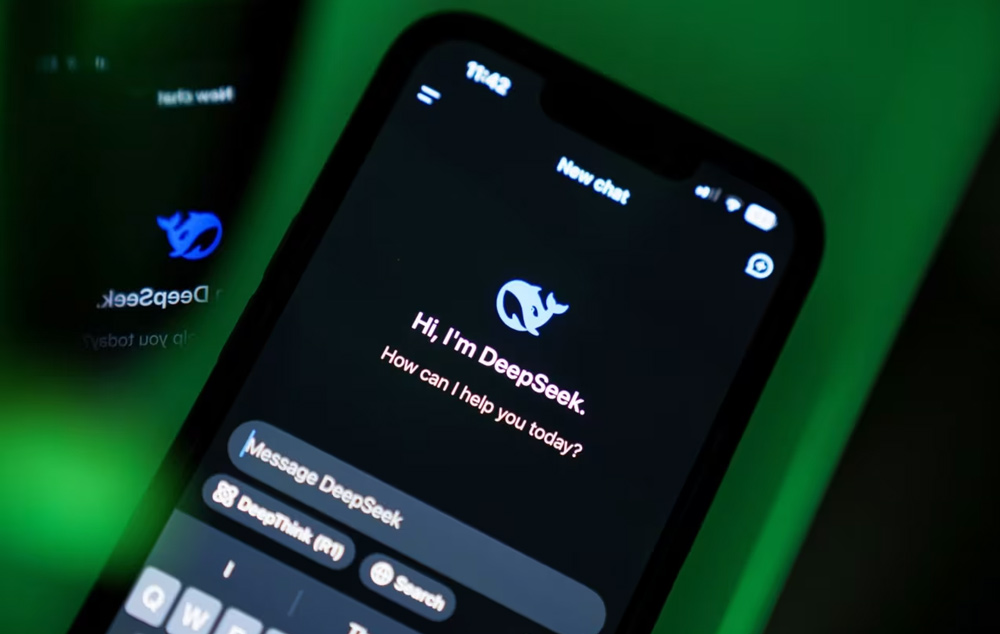The artificial intelligence (AI) landscape is undergoing a profound transformation in 2025 as next-generation AI agents, like those developed by DeepSeek and other leading firms, pose a significant challenge to the dominance of large language models (LLMs) such as OpenAI’s GPT series. These developments could fundamentally change how AI is utilized and valued across industries, with implications for major tech firms, market trends, and the future of AI itself.
From LLMs to AI Agents: A Paradigm Shift
Large language models, the foundational technology behind popular applications like OpenAI’s ChatGPT, have long been celebrated for their ability to generate human-like text, write code, and create multimedia content. However, as Thomas Wolf, co-founder of Hugging Face, points out, the industry is moving away from the “craziness around the model” to focus on integrating LLMs into more intelligent systems. This shift, spearheaded by the development of AI agents, is expected to redefine the AI landscape.
AI agents differ from traditional LLM applications by being action-oriented. For example, while tools like ChatGPT require user prompts to guide their outputs, AI agents are designed to autonomously perform tasks. These tasks could range from booking appointments and managing emails to writing code and collaborating with team members on platforms like Slack or Google Docs. By streamlining actions and reducing user effort, these agents are positioned to become the next big leap in AI technology.
DeepSeek’s R1 Model: A Game-Changer?
Chinese AI firm DeepSeek is at the forefront of this shift. The company recently released its R1 model, an open-source reasoning model that promises superior performance and cost efficiency compared to OpenAI’s o1 model. R1 employs a “mixed precision” framework, combining 8-bit and 32-bit floating-point calculations to optimize both speed and accuracy. This innovative approach has drawn significant attention, with analysts viewing it as a major step toward the commoditization of LLMs.
The launch of R1 has not been without consequences. Shares of major tech firms like Nvidia, which rely on the high demand for graphics processing units (GPUs) to train and run LLMs, have plummeted. Nvidia alone lost nearly $600 billion in market capitalization in a single day, marking the largest single-day decline in U.S. market history. Investors are increasingly concerned that the rise of cost-effective, open-source models like R1 could reduce the demand for expensive proprietary AI systems, reshaping the AI market’s economic landscape.
Commoditization of LLMs: The End of an Era?
The growing accessibility and efficiency of large language models suggest that they are becoming more of a commodity. As open-source models proliferate, the competitive edge once held by proprietary LLMs is diminishing. Microsoft CEO Satya Nadella recently commented on this trend, stating, “As AI gets more efficient and accessible, we will see its use skyrocket, turning it into a commodity we just can’t get enough of.”
Matt Calkins, CEO of U.S. software firm Appian, echoed this sentiment, predicting a future where AI models are less differentiated, making it harder for early adopters to maintain their competitive advantage. “A lack of differentiation will be bad for high-spending first-movers,” he noted.
The Rise of Agentic Systems
While LLMs remain a critical component of AI technology, the focus is increasingly shifting toward “agentic systems” that integrate these models into broader, more capable platforms. These systems aim to provide end-to-end solutions for users, automating complex workflows and integrating contextual business data to enhance decision-making.
For instance, OpenAI recently launched “Operator,” an AI agent designed to navigate the web and perform tasks on behalf of users. Similarly, Amazon-backed Anthropic introduced “Computer Use,” enabling AI agents to interact with computer systems like humans. Anthropic’s CEO, Dario Amodei, revealed plans to develop a “virtual collaborator” by the end of 2025, an agent capable of writing and debugging code, communicating with teammates, and completing tasks autonomously.
Salesforce, another major player in the AI space, has been an early adopter of agentic AI with its “Agentforce” system, launched in late 2024. Paul O’Sullivan, Salesforce’s chief technology officer for the U.K. and Ireland, predicts that verbal communication will play a more prominent role in this new era of AI, as screens and traditional interfaces give way to more dynamic, voice-driven interactions.
Implications for the Future of AI
The rise of AI agents and the commoditization of LLMs highlight a broader trend in the AI industry: the transition from focusing on standalone models to building integrated systems that deliver tangible value. As Arthur Mensch, CEO of European AI firm Mistral, observed during the World Economic Forum in Davos, “The focus should shift to systems that integrate both language models and contextual business data. That’s where the value of AI lies.”
This shift also underscores the importance of open-source innovation in driving the AI industry forward. Platforms like DeepSeek’s R1 demonstrate how open-source models can challenge established players and democratize access to cutting-edge AI technology.











